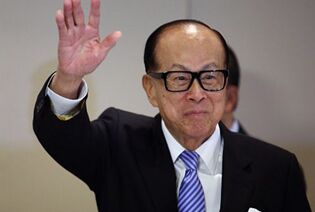和记电讯出售固网业务是好买卖吗
|
The market for mobile telecoms promises growth but teems with competition. So infrastructure investors are increasingly pegging their hopes on the greater stability of “wired” broadband businesses. An example: I Squared Capital has agreed to buy HGC, the fixed-line subsidiary of Li Ka-shing’s Hutchison Telecom, for HK$14.5bn ($1.9bn). Shares in Hong Kong-listed Hutchison jumped 6.8 per cent to two-year highs. Online TV offerings have helped demand for broadband connections delivered through fixed lines. The International Telecommunications Union estimates the number of fixed broadband customers grew 11 per cent to 884m in the year to 2016. The Asia-Pacific region is half the total, and grew faster.
The fixed-line business is less competitive than mobile and comes with higher margins. This reflects subscribers’ inertia and a slower upgrade cycle. The difficulty of providing “last-mile” infrastructure provides a barrier to entry, too. Hutchison’s revenues shrunk 45 per cent last year, due to lower demand for new smartphones. The group has said that it wants to use the transaction proceeds to strengthen its market position in the mobile business. At a sale price of 36 times trailing earnings, there will be cash to support that. In October, Wharf Telecom sold its fixed-line business to a consortium including TPG at roughly 30 times prior year earnings. NetLink, the recently floated group that manages Singapore’s fibre network, trades at 39 times earnings but faces less domestic competition. Such high valuations might tempt other operators to monetise their broadband assets in order to throw more cash at winning market share in mobile. They should be careful. Hutchison will at least have a choice of fixed-line providers from which it can rent capacity once it has sold HGC. This is not the case in all jurisdictions. It may sometimes be more prudent to remain a monopolist than become a customer of one. |









